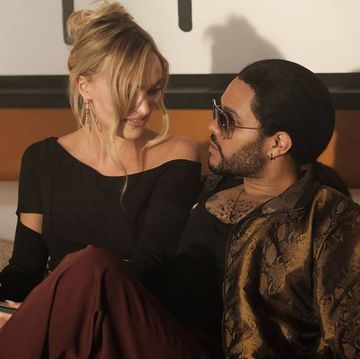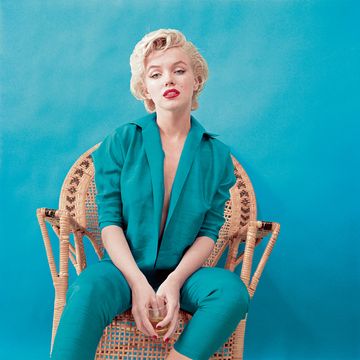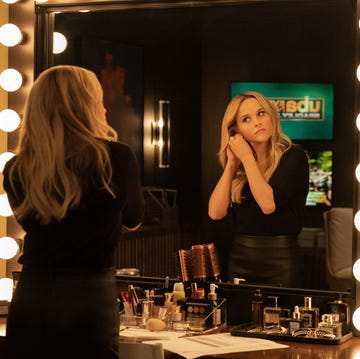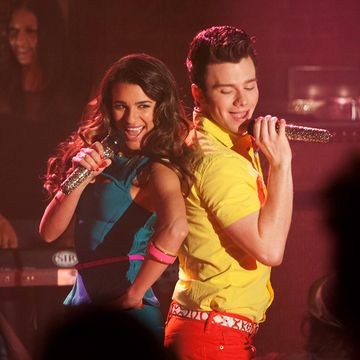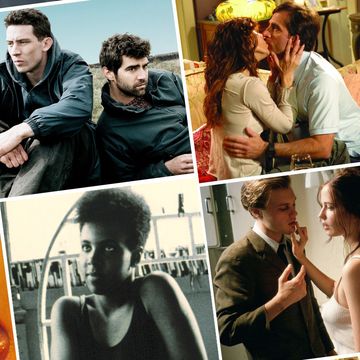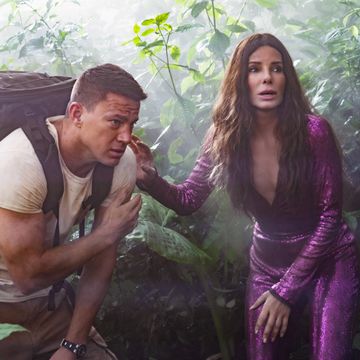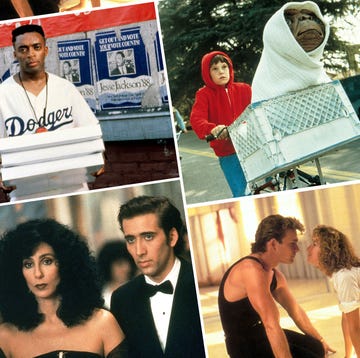Tom Holland wants to let his work do the talking. After rising to international fame and garnering critical acclaim for playing Peter Parker (a.k.a. Spider-Man) in six movies in the Marvel Cinematic Universe, Holland—who, at 27, occupies a rarefied position in pop culture as one of the most popular actors out there right now—has thought long and hard about the responsibility that comes with the power he’s accrued in the last seven years.
“For me, when it comes to looking for the next job, it’s about the message, and that is the same thing for Spider-Man,” Holland told Bazaar.com on a recent video call. “I’m at the end of my Spider-Man contract now. I’m kind of in this weird limbo phase. We were developing a fourth Spider-Man movie [before the WGA strike], and all of the conversations that we’ve been having are ‘What is the message? What do we want to try and convey?’ And unless we can find a message that is worthy of Spider-Man’s caliber and global success, then we won’t tell [another] story.”
Holland’s latest role, in The Crowded Room, which is now streaming on Apple TV+, is a far cry from his work as a web-slinging superhero. Created by A Beautiful Mind screenwriter Akiva Goldsman, the 10-part psychological thriller tells the story of Danny Sullivan (Holland), a man who is arrested following his involvement in a shooting in New York City in 1979. (The character is loosely inspired by the true, controversial case of Billy Milligan.) Through a series of interviews with interrogator Rya Goodwin (Amanda Seyfried), Danny reveals the elements of his painful past that have shaped him, leading him to a revelation that will challenge everything he knows about himself.
More From Harper's BAZAAR

“The message for The Crowded Room is that asking for help is an act of bravery, and it’s not something that you should be ashamed of,” the English actor says. “I feel very passionately about that message, and it can go in all walks of life—bullying at school, abuse at home, substance abuse, mental health. Asking for help should be something that we celebrate.”
Below, Holland opens up about the challenges of advancing the conversation about mental health, the evolution of his relationship with fame, his upcoming turn as Fred Astaire, and why he doesn’t agree with the notion that actors are boxed in by their decision to play a superhero.
Your character of Danny is someone who’s constantly looking for empathy from the people around him, but no matter where he looks, he just can’t find it. His aimlessness is further compounded by the events in his past that have almost broken him beyond repair. What do you think Danny sees when he looks at himself in the mirror?
That’s a very tricky question for me to answer without spoiling certain aspects of the show, but I can say that when he sees himself in the mirror, I think he’s unsure as to who’s looking back at him. He has a really weak sense of identity. He is someone who has been pushed and pulled in so many different ways that are completely out of his control, so he is someone who is struggling to not only fit in, but to find himself. The show is a story of discovery and acceptance.
We’ve reached a point in today’s culture where we recognize the importance of caring for one’s own mental health, and yet there is still a significant gap between the abstract nature of mental health—talking and raising awareness about it—and the actions that are being taken to, for lack of a better way of putting it, “walk the walk” instead of just “talk the talk” on a societal level. How do you hope the work you’re doing on- and off-screen can help move the conversation beyond simply raising awareness?
With mental health, that first step has to be taken yourself. Hopefully, through this show, the message that we can get out there is that you should feel empowered to ask for help, to accept the pain that you’re going through, to not be ashamed of it, to understand that you’re not alone.
I think what’s particularly challenging about spreading the word with mental health is that it’s an invisible affliction. If I was gonna try and raise money for people that had a problem … [epidermolysis bullosa, a rare condition that causes fragile, blistering skin] is a great example. [My family and I] sponsor EBRP and DEBRA. People with EB have very visual ailments. They are constantly in pain, and it’s a really easy cause to get behind because you can see firsthand how much pain these people are in.
Mental health is a slightly more complicated subject because you can’t see it, and the pain is internal. So, to try and build a platform that has more compassion, that has more sympathy and more understanding to the internal struggles that many people are going through on a daily basis, is a really wonderful thing that I think we’ve achieved with the show, and I’m hoping that the general public will pick up on that message.
With actors who play superheroes, there is this supposed challenge, at least from the outside looking in, of trying to break out of that mold, because this business has a tendency to put you in certain boxes or to see you only in a certain light. How are you choosing to select projects now that you’re at the end of your Spider-Man contract, regardless of whether you continue to play that character or not?
To be perfectly honest with you, I don’t agree with the idea of feeling like I’m in a box. I approach the Spider-Man movies in the same way I would approach The Crowded Room. I don’t necessarily feel the stigma of being a superhero. Once a superhero, always a superhero. I’m an actor. At the end of the day, I love my work. I’m lucky to do it to the capacity that I’m allowed to. I love Spider-Man, and if people only see me as Spider-Man, then I’d be lucky because that character changed my life.
I think that the idea that certain people get stuck in certain boxes is not true, and I’ve seen people say things about me where I should just stick to doing Spider-Man, like, “That’s all you’re good for.” And I’m like, “Great. That’s awesome. I appreciate your opinion. I’m gonna continue to do what I really enjoy doing, which is challenging myself and putting myself out there.” Obviously, it’s a wonderful additive if people like it as well, but at the end of the day, I’m on my own journey. … It’s not an active conversation [my team and I] are having, to try and get out of this imaginary box that someone that I don’t know has supposedly put me in.
What draws you to playing these characters that have such complex layers and difficult trajectories in the first place? What do you personally get out of stepping into the shoes of someone who seems so far removed from who you are as a person?
It goes back to what I was saying earlier: It’s the challenge; it’s the education. I’m a young kid who hardly went to school. I’ve been working since I was 12 years old, so I’m void of a traditional education. To sit down with a writer who’s as talented as Akiva Goldsman and learn about the process of writing, the human mind, psychology, the criminal justice system and New York in the ’70s, and how far we’ve come and how far we’ve still yet to go, is exactly why I do what I do. These jobs are so insightful, and they educate me in things that I would never have known about before. So, albeit The Crowded Room is a wonderful opportunity for me to flex my muscles as an actor and do things I haven’t done before, ultimately, it serves us as an education and a building block to me as a human being rather than me as an actor.
Danny takes it to the nth degree, but your character reveals different parts of himself depending on the context, and it goes back to this idea of how differently we act around different people in our own lives. On that same token, you’ve been forced to reckon with which parts of yourself you’re willing to give up for public consumption as a trade-off for the success of your work. How have you been able to manage that division between your public and personal selves, when you’re trying to figure out what you want to share and what you want to keep for yourself?
I think I look up to people. The types of people that I admire in my business are the types of people whose lives I would like to emulate. Someone like Cillian Murphy, arguably one of the best actors in the business—you never see him anywhere, you know? Daniel Craig—he’s the man, he’s a hero. I think he’s one of the coolest people. I had the luxury of meeting him when I was 13 years old. He was incredibly pleasant, kind, and warm. You never see him anywhere, but he’s one of the biggest movie stars in the world. The people that are able to remain relevant [and] present, do good work, and at the same time somehow manage to live a regular life are the people that I really admire.
That advice first came from my dad. When Spider-Man happened and my life was changing, literally day by day, my dad was the one that was like, “You should pump the brakes. This fame is inevitable, so try and delay it as much as you can and enjoy your early 20s and be a kid. Go and make the mistakes that every young kid makes that they need to learn from to become a well-rounded adult.” And at the time, I was really upset by my dad’s advice. I just thought it was the wrong advice.
And looking back on it now, I’m so glad he gave me that advice and equally glad that I had the wherewithal to listen to him, because I think it was really important. It shaped who I am now. It shaped the way I like to talk to the press. I’m very selective with who I talk to, when I talk to them, and what I talk about. There are certain aspects of my life that you are welcome to ask me about, but you will not get an answer, and it’s because it’s my life and I want to keep it that way.
Back in 2021, you were cast to play Fred Astaire in a biopic, which you’re now planning to shoot at the beginning of next year. What have you found most challenging about gearing up to play such an important cultural icon?
I think the challenges with playing Fred are pretty obvious, right? Stepping into his shoes, dancing again, and getting back into that aspect of my life is daunting but exciting. I love being scared. I think it’s a great feeling. It’s something that I think inspires my best work. In terms of the story that we’re looking to tell [with Fred Astaire], I don’t really feel like I can talk about that right now. I don’t want to call it a transitional period, but we’re obviously on pause, and we’re supporting the writers. There’s nothing going on right now.
We’ve had a great writer [Lee Hall], someone that I’ve always really admired, someone I’ve worked with before [to pen the script]. I think [director] Paul King is the guy for the job. I’m excited for the writers to come to a resolution and feel like they’re respected and being appropriately looked after in the ways that I believe they should be, so that we can sit down, have a meeting, get it going, talk about it creatively, talk about what we want to achieve. It’s early doors for me to be talking about it. It’s still up in the air. It could not happen. But hopefully it does, and we’ll just have to wait and see.
This interview has been edited and condensed for length and clarity.

Max Gao is a freelance entertainment and sports journalist based in Toronto. He has written for The New York Times, Los Angeles Times, NBC News, Sports Illustrated, The Daily Beast, Harper’s Bazaar, ELLE, Men's Health, Teen Vogue and W Magazine. Follow him on Twitter: @MaxJGao.




